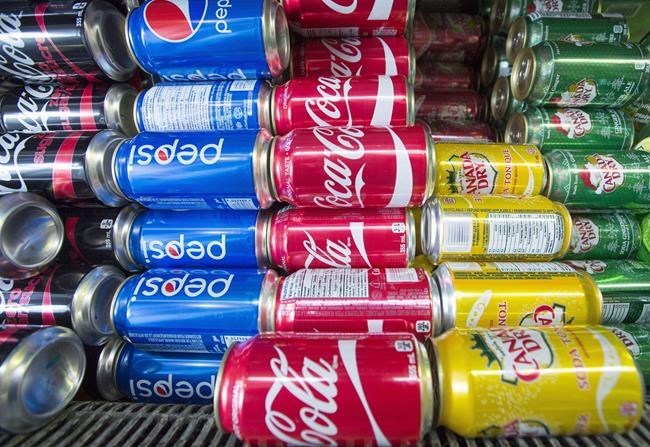Soda pop, streaming movies and those with strong salaries took a hit in provincial Finance Minister Carole James’s budget on Tuesday.
The province expects its new taxes will raise $245 million this coming year, and $264 million in 2021. The measures are designed to offset increasing costs of health care and the province’s infrastructure program.
The bulk of the new tax revenue — $216 million this year and $219 million next — will come from a new tax bracket targeting anyone making more than $220,000, while $27 million will come from soda sales, most of which comes from the pocket change of 14-to-18-year-olds.
There’s also $11 million the province expects to get from companies that sell more than $10,000 worth of software and telecommunication services in B.C. Companies such as Netflix will now have to register and collect provincial sales tax.
Starting July 1, sweetened carbonated beverages will be subject to the seven per cent provincial sales tax.
James said the measure has been recommended by an all-party committee and health care professionals.
The tax will also apply to all beverages dispensed through soda fountains, soda guns and vending machines, other than those that dispense only coffee, tea or water.
James said she hopes the application of the PST will result in a reduction in soda sales.
Dr. Tom Warshawski, chairman of the Childhood Obesity Project, hopes so. He has been pushing for the measure for seven years.
“This brings B.C. into alignment with virtually every other province,” he said. “B.C. has traditionally perceived sugary drinks as a grocery item and a necessity rather than a luxury.”
Warshawski said sugary drinks are a risk factor for obesity and can lead to Type 2 diabetes, hypertension and stroke, and should not get a free pass.
“It made no sense for the province to allow this product to escape the PST, which is used to fund services like health care,” he said. “You have a product that generates more than its share of health care costs and doesn’t pay its share.”
Kris Sims, B.C. director of the Canadian Taxpayers Federation, isn’t arguing the nutritional value of the PST, but cringed at the idea of more taxes.
“This is now going to cost you more to fill your fridge, heat your home and watch your favourite streaming shows,” she said, noting the new measures combined will bring in $38 million this year. “That’s a lot of dough.”
Sims said it’s hard to square the measures with the NDP government claiming it is making life more affordable in B.C.
“They really seem to want to believe it,” she said.
While pinching pocket money for pop or to watch movies at home may sting, the real impact will be felt in the pockets of B.C.’s top earners.
Retroactive to Jan. 1 of this year, a new top personal tax bracket of 20.5 per cent will be applied to income above $220,000. Previously income at that level was taxed at 16.8 per cent.
“Today we’re asking the people at the top, the highest one per cent of individual income earners, to pay a little more and help B.C. provide families and communities with better services and stronger infrastructure,” said James, who noted nearly half the revenue generated from the tax will come from individuals who make more than $1 million annually.
James argued B.C.’s personal income tax rates remain competitive, noting people earning below $140,000 generally pay the lowest rates among the provinces and B.C. will still have the third lowest income tax for people earning up to $475,000.
Budgets are about choices, she said, and instead of making cuts to programs and services when the economy slows down, the government has decided to ask the rich to dig a little deeper.
“We believe they have benefited from a strong economy and can contribute a little bit more,” she said.
B.C. budget’s main points
Highlights of British Columbia’s 2020-21 budget released Tuesday:
• Starting in September, post-secondary students can receive up to $4,000 a year to help cover tuition costs under a new grant program.
• The seven per cent provincial sales tax will be applied to sweetened carbonated drinks starting on July 1, which will generate an additional
$27 million in tax revenue in 2020-21.
• A new personal income tax rate of 20.5 per cent on taxable income starting in 2020 is being introduced for those earning more than $220,000, described as the top one per cent of income earners in the province.
• The budget forecasts surpluses of $227 million for 2020-21, $179 million for 2021-22 and
$374 million for 2022-23.
• Real GDP growth is forecast to be two per cent in 2020, and 1.9 per cent in 2021 and 2022.
• A record $22.9 billion will be spent over the next three years on infrastructure.
• The total provincial debt is forecast to be about $70.6 billion in 2019-20, climbing to about
$87.6 billion in 2022-23, largely because of borrowing costs to cover capital spending.
— The Canadian Press



